
Cardifine 3.125mg Tablet
Manufacturer
Morepen Laboratories Ltd
Salt Composition
Carvedilol (3.125mg)
Key Information
Short Description
Cardifine 3.125mg Tablet is used to treat high blood pressure, heart-related chest pain (angina), and heart failure by relaxing blood vessels.
Dosage Form
Tablet
Introduction
Cardifine 3.125mg Tablet should be taken with food in the dose and duration as advised by the doctor. It is important to continue taking it even if you feel well or if your blood pressure is controlled. Do not stop this medicine without consulting your doctor as your condition could worsen. Lifestyle changes such as regular exercise, weight loss, smoking cessation, reducing alcohol intake, and lowering salt intake can help improve your condition. Common side effects include dizziness, headache, breathlessness, and tiredness. Consult your doctor if these side effects persist. Inform your doctor if you have any heart or kidney diseases. Pregnant or breastfeeding mothers should also seek medical advice before taking this medicine.
Directions for Use
Take this medicine in the dose and duration as advised by your doctor. Swallow it whole without chewing, crushing, or breaking it. Cardifine 3.125mg Tablet should be taken with food.
How it works
Cardifine 3.125mg Tablet is an alpha and beta blocker. It works by slowing down the heart rate and relaxing blood vessels, making the heart more efficient at pumping blood around the body.
Quick Tips
It should be taken with food. Check your blood pressure 1 week after starting Cardifine 3.125mg Tablet and inform your doctor if it has not improved. Cardifine 3.125mg Tablet may cause dizziness or sleepiness. Do not drive or do anything requiring concentration until you know how it affects you. It is best to avoid drinking alcohol while taking Cardifine 3.125mg Tablet as it may make the side effects worse. Do not stop taking Cardifine 3.125mg Tablet suddenly as it can cause your blood pressure to rise suddenly, increasing the risk of heart attack and stroke.
Related Medicines
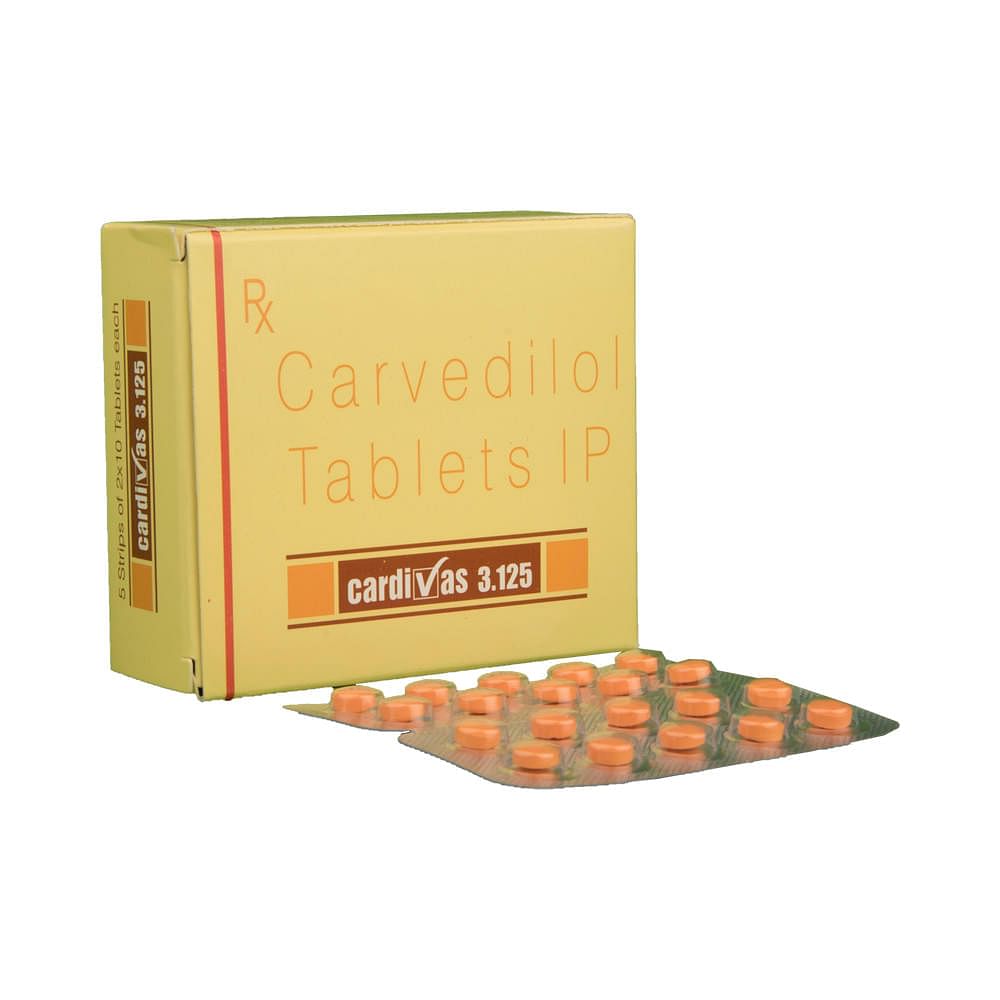
Cardivas 3.125 Tablet
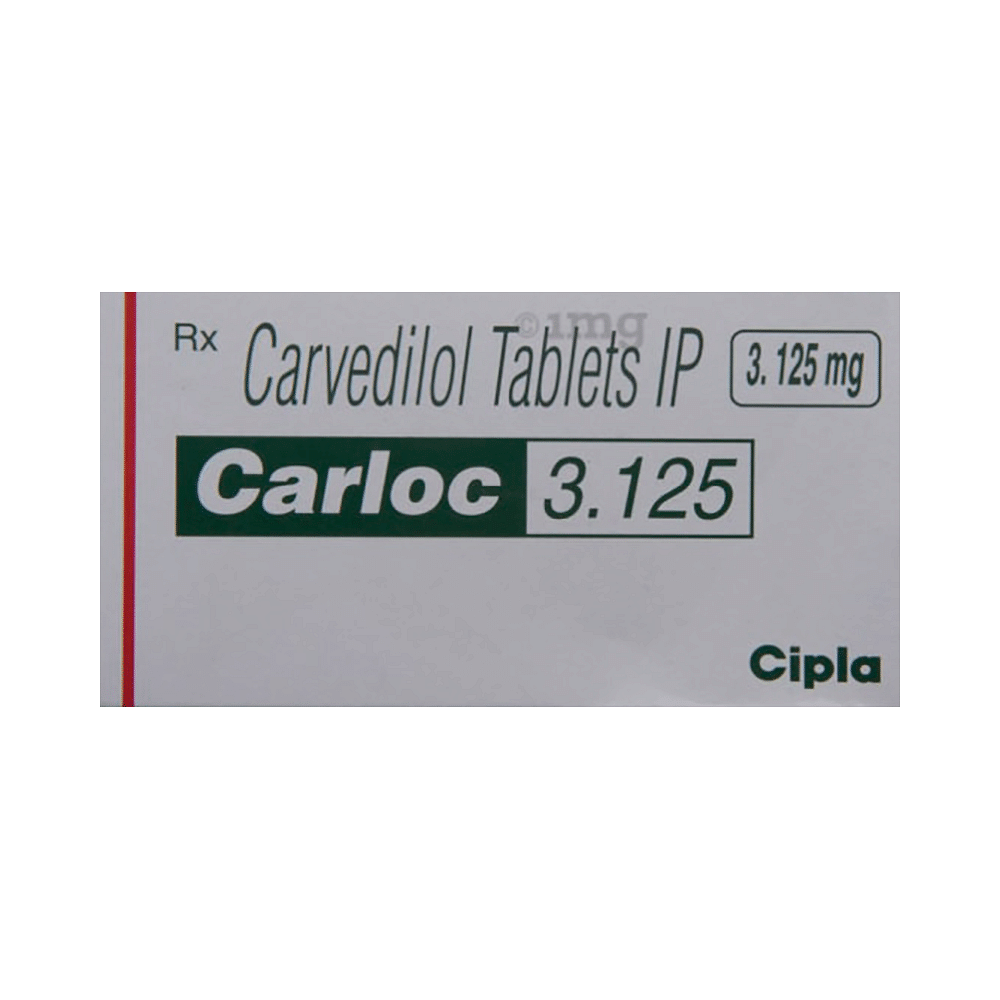
Carloc 3.125 Tablet
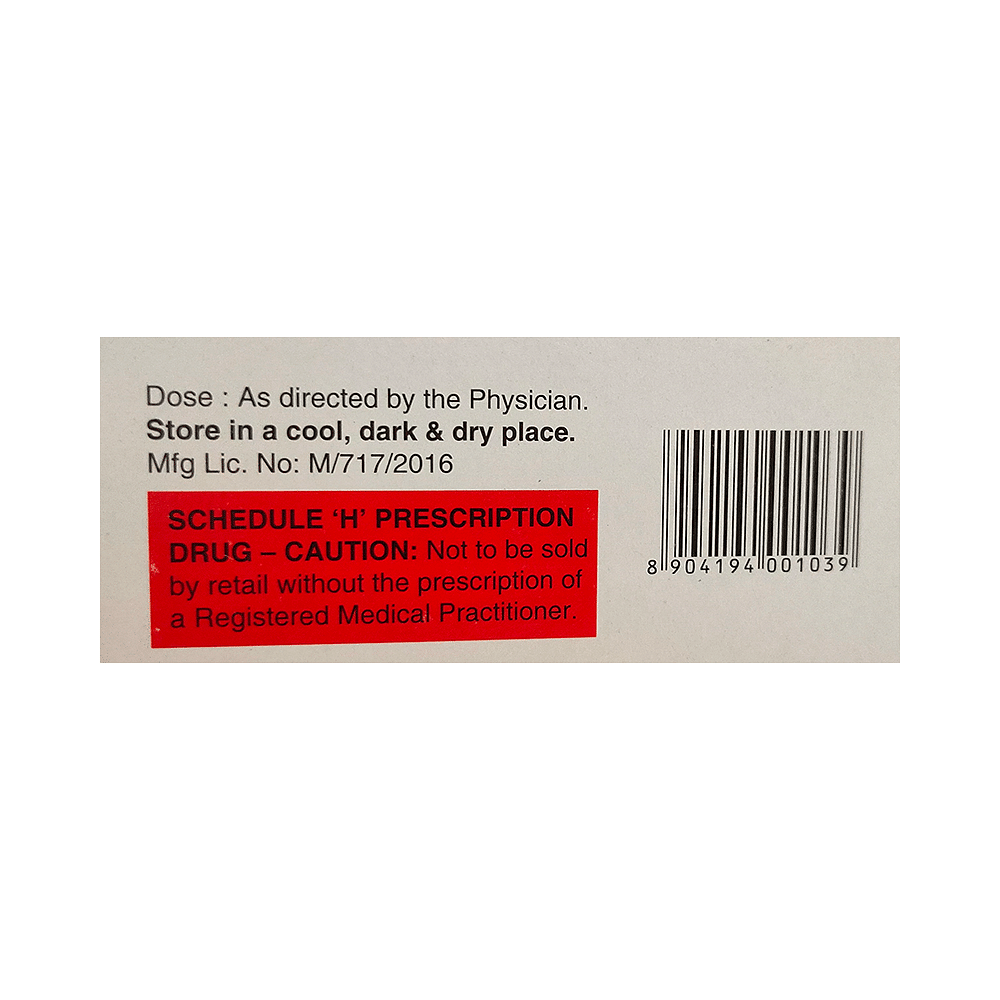
Carca-3.125 Tablet
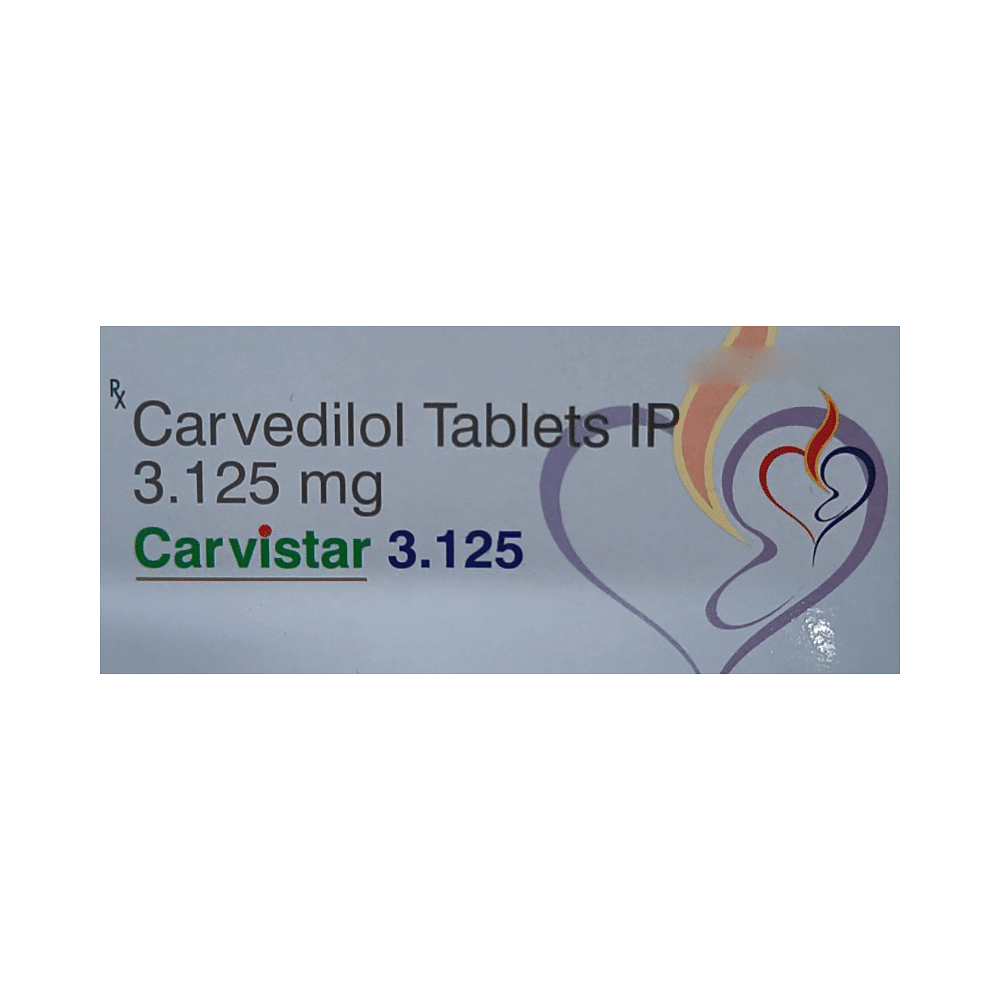
Carvistar 3.125 Tablet

Carvejohn 3.125 Tablet

Carvicard 3.125mg Tablet

Carvefine 3.125mg Tablet

Caditone 3.125mg Tablet

Sazocard 3.125mg Tablet
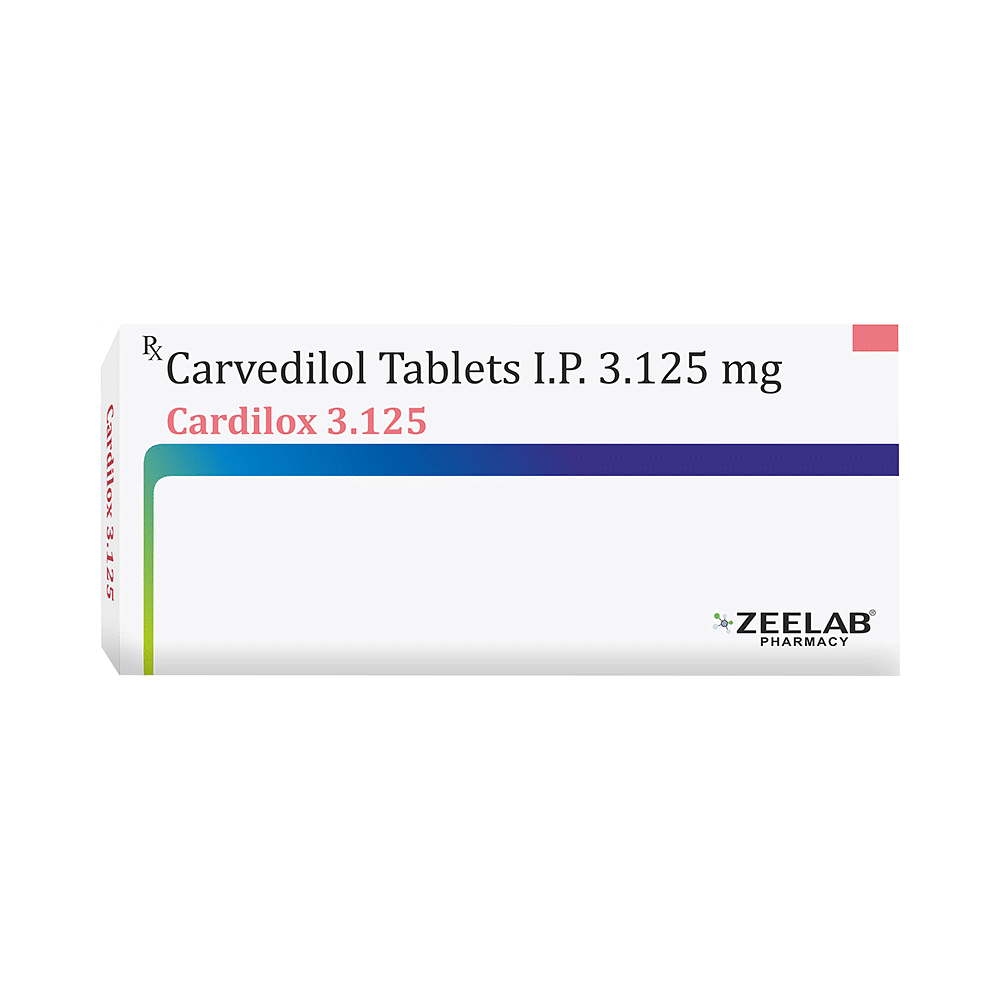
Cardilox 3.125mg Tablet
Frequently asked questions
What happens when you stop taking Cardifine 3.125mg Tablet?
You must take Cardifine 3.125mg Tablet regularly as prescribed by your doctor. Suddenly stopping it may cause chest pain or heart attack. Your doctor may gradually lower the dose over time before stopping it completely if needed.
Does Cardifine 3.125mg Tablet make you tired?
Yes, Cardifine 3.125mg Tablet can cause tiredness and dizziness. These may occur initially when starting the treatment or when the dose is increased. If you experience these symptoms, do not drive or operate machinery.
Can Cardifine 3.125mg Tablet cause weight gain?
Yes, weight gain is a common side effect of Cardifine 3.125mg Tablet, but it doesn't happen to everyone. If you are taking Cardifine 3.125mg Tablet for heart failure, tell your doctor if you gain weight or have trouble breathing, as this may be a sign of fluid retention.
Can Cardifine 3.125mg Tablet cause kidney failure?
Using Cardifine 3.125mg Tablet in patients with heart failure can occasionally lead to deterioration of kidney function. However, it may also increase the risk of kidney failure in those with low blood pressure (systolic blood pressure less than 100 mm Hg), hardening of the arteries and/or existing heart disease, or pre-existing impaired kidney function. These patients should be closely monitored during treatment with Cardifine 3.125mg Tablet. However, kidney functions return to baseline when Cardifine 3.125mg Tablet is stopped.
Can a diabetic patient take Cardifine 3.125mg Tablet?
Yes, a diabetic patient can take Cardifine 3.125mg Tablet provided regular blood glucose monitoring occurs. It hasn't been found to significantly affect blood glucose levels in patients with well-controlled diabetes and mild to moderate hypertension. However, the use of this class of drugs (beta-blockers) may hide symptoms of hypoglycemia (low blood sugar), like increased heartbeat or palpitations. Additionally, Cardifine 3.125mg Tablet might worsen hyperglycemia (high blood sugar) in patients with heart failure and diabetes. Therefore, it is crucial to closely monitor blood glucose levels during the treatment of Cardifine 3.125mg Tablet. Inform your doctor if there are any changes in blood glucose level while taking this medication.
Can I take Cardifine 3.125mg Tablet on an empty stomach?
It's generally recommended to take Cardifine 3.125mg Tablet with food as it helps reduce the absorption rate, which may decrease dizziness caused by orthostatic hypotension (low blood pressure when standing up).
What are the serious side effects of Cardifine 3.125mg Tablet?
Cardifine 3.125mg Tablet can cause serious side effects such as fainting, shortness of breath, weight gain, swelling of the arms, hands, feet, ankles or lower legs. Some may also experience chest pain, slow or irregular heartbeat, rash, hives, itching and difficulty breathing and swallowing. If you experience any of these symptoms, contact your doctor immediately.
What should I do if I take more than the recommended dose of Cardifine 3.125mg Tablet?
Taking a higher dose can lead to slow heartbeat, dizziness, fainting, difficulty breathing, vomiting and loss of consciousness or seizures. Contact your doctor immediately and seek immediate medical help at the nearest hospital.
Who should not take Cardifine 3.125mg Tablet?
Cardifine 3.125mg Tablet should be avoided if you have severe heart failure, are hospitalized in an intensive care unit or require intravenous medications that support circulation (inotropic medications). Additionally, it's best to avoid using this medication for those with asthma or breathing problems, slow heartbeat or irregular heartbeat, liver problems and allergies to Cardifine 3.125mg Tablet.


